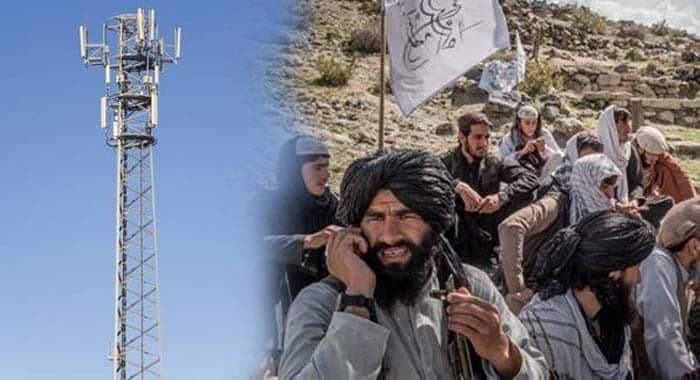The deployment of a Russian-built 4G network across Taliban-controlled Afghanistan by Protey, a telecommunications firm sanctioned by the United States, is raising alarm among international security analysts who warn of potential implications for regional counterterrorism efforts and surveillance risks.
According to a report published Thursday, Protey, headquartered in St Petersburg and placed under U.S. sanctions last year for its links to Russia’s military-industrial base, has installed 4G antennas in four Afghan provinces. The network, developed in coordination with Russian state-owned telecom giant Rostelecom, is capable of serving up to 10 million users.
The move marks Protey’s first international expansion and represents the export of Russia’s first fully domestic telecom system free from Western hardware or software to a country governed by the Taliban, a regime widely isolated on the international stage since its return to power in 2021.
Western telecom companies such as Ericsson and Nokia exited Afghanistan following the Taliban’s takeover, while Chinese firms like Huawei and ZTE significantly reduced operations. The resulting vacuum has now been filled by Protey, whose arrival in the country is viewed by some analysts as a strategic foothold for Moscow and a technological lifeline for the Taliban.
Security experts have voiced concern that telecommunications infrastructure built and operated by a U.S.-sanctioned entity in cooperation with a non-recognized regime could have serious intelligence and counterterrorism implications. The absence of independent oversight and the opaque nature of Taliban governance have intensified fears that the network could be used for surveillance, suppression of dissent, or communications between extremist elements.
“This isn’t just about telecom access it’s about who controls the digital gateway in one of the world’s most volatile regions,” said a regional security analyst. “A sanctioned Russian firm providing core communications infrastructure in Taliban territory has significant ramifications for intelligence operations and anti-terror coordination.”
Alesya Mamchur, Vice President of Rostelecom, confirmed the rollout but did not specify the provinces where the network has been deployed. She said the infrastructure could support around 10 million users, though she declined to comment on any data privacy or monitoring protocols in place.
The development adds a new dimension to the geopolitical struggle over Afghanistan, where international actors have withdrawn but strategic competition particularly in technology and infrastructure continues to evolve. Analysts believe Protey’s involvement may signal a broader Russian push into the Global South, targeting states and regions left in diplomatic and commercial isolation by the West.
As global scrutiny grows over digital sovereignty and the misuse of telecom systems, Protey’s operation in Afghanistan is likely to remain under close watch by Western governments and intelligence agencies monitoring developments in counterterrorism, sanctions evasion, and great power rivalry





